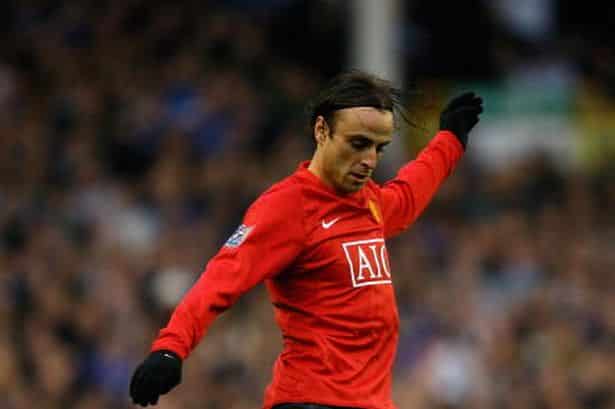Let’s just say that Dimitar Berbatov was never your ‘conventional’ striker, but that doesn’t mean he wasn’t brilliant.
In fact, there’s evidence to suggest that his playmaking and less selfish efforts gave rise to some of the your more conventional ‘False 9’ forwards of today. Now of course, he wasn’t the beginning of this revolution, and nor should credit be taken away from the players before him. But you can’t deny how influential he turned out to be for the Premier League in particular.
Before he came in, your typical ‘number 9’ striker was somebody who was focused on scoring goals above anything else. That type of player to bust a gut to get into a box and get on the end of whatever ball they could with the vague hope that a goal would arise by the end of it. But Berbatov saw himself more of a provider than a goal-getter – and there’s nothing wrong with that way of thinking! Just ask Roberto Firmino, right?!
After cooking up a storm in Germany with Bayer Leverkusen, the way of the world dictates that he had to come to a more visible league to earn something near the credit that his talent was yearning to be rewarded for. And this is exactly the opportunity he got when joining Tottenham Hotspur in 2006 for a rough fee of around £11 million.
Two seasons later, with an average of a goal involvement every other game (facilitated largely because of a positive strike partnership with Robbie Keane), and it seemed inevitable that Berbatov would be the subject of a big-money move to further his career as it reached its prime. And after a long drawn-out saga between the two Manchester clubs in the summer of 2008, it would be Manchester United to ultimately secure Dimitar Berbatov for £30.75 million at the eleventh hour on ‘Deadline Day‘.
While here, he had a decision to make: either he downs his tools to get the crowd on side and do his best to score goals above all else, or stick to his guns and prove the virtue of having someone like him in the space behind another striker as a partner. Well, I think Sir Alex Ferguson knew which was more beneficial with his squad – as incumbent strikers like Wayne Rooney and Carlos Tevez were able to benefit greatly from Berbatov’s creative exploits. And it’s something that the club have struggled to replicate since the Bulgarian left the club four years later.
Now that I’m a little more mature (in a footballing sense), I have grown to greatly appreciate the talents of Dimitar Berbatov. He was insanely creative, was very calm on the ball, controlled the thing like no other and was able to retain it better than any other player in his team – both in London and in Manchester.
Granted, his physical exploits on the pitch (in terms of pure pace and doggedness) left little to be desired, but as fans, it’s time that we stop expecting players to have absolutely everything about their game to be considered a world-beater. Zinedine Zidane couldn’t defend – because that wasn’t his job! Paul Pogba shouldn’t have to carry out the boring stuff – because he’s far better at the flashy stuff … sometimes!
And with Dimitar Berbatov, he didn’t have to break his neck to get on the end of a cross – because his talent was far better suited to crossing it in the first place. All in all, Ultra United respect what Berbatov did for English football, and how he’s shaped that creative role as a False 9. A striker who didn’t need to score … who’d have thunk it?!

Pingback: When Dimitar Berbatov met Robbie Keane in 2006 - Ultra UTD